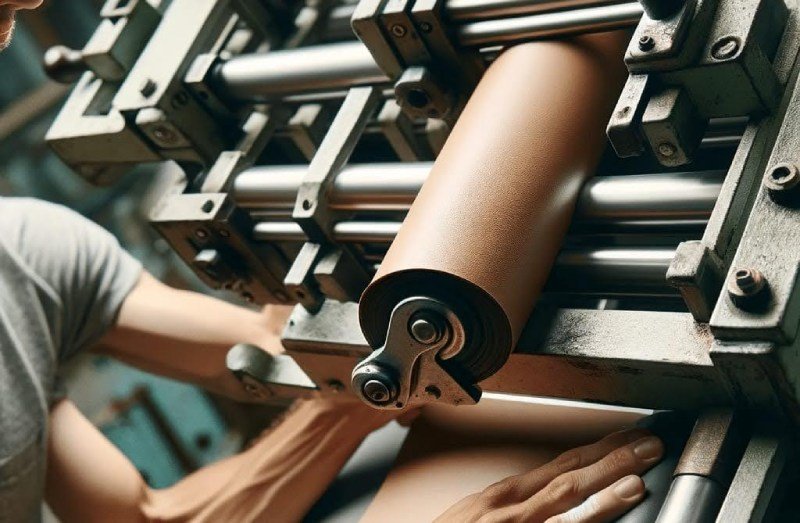Few industries have been as drastically transformed as footwear manufacturing by the continuous evolution at the junction of technology and manufacturing. Now it is the era of intelligent shoe-making machines—smart devices that have really changed how shoes are designed, produced, and personalized in order to fit consumers’ needs. This blog explores how such smart machines change the design, production, and personalization part of shoes, along with what it holds for the future of shoe making.
1. Evolution of Shoe-Making Technology:
Shoemaking, as a process, has traditionally been laboriously manual, involving a plethora of operations starting from cutting and stitching to lasting and finishing. Besides the fact that classically, good quality footwear was ensured by craftsmanship, advances in technology have now provided for smarter and more efficient methods to make shoes.
Historical Background: The history of the shoemaking industry has relied on superior craftsmanship and manual intervention. When mechanization brought about some level of efficiency, most of the operations were still handmade.
Technological Leap: The intelligent shoe-making machines have brought a significant leap. They incorporate modern robotics, artificial intelligence, and data analysis capability that take production efficiency and quality control to an entirely new plane.
2. Features of Intelligent Shoe-Making Machines:
Advanced shoe-making machines incorporate various technologies that better realize efficient, accurate, customized shoe making.
Robotic Precision:
State-of-the-art machines employ robotics in tasks such as cutting, stitching, and assembling, which are done with minute precision. This elicits limited human errors and batch-to-batch consistency.
AI and Machine Learning:
The AI algorithms tune the entire process of production according to the acquired information from previous runs of production. This potential of the smart machines can be geared in the right direction for predictive maintenance, adaptive quality control, and real-time adaptation according to the changing parameters of production.
Advanced Materials Handling:
From leather and synthetics to advanced composites, intelligent machines provide astonishing high-quality results in performing operations with an array of diverse materials. These machines are set up to face different textures and thicknesses to cope up with the complication of various materials.
3. Improved Customization and Personalization:
Probably the most exciting feature of intelligent shoe-making machines is that they are capable of addressing the needs and requirements of every single person.
Made-to-Measure:
Thanks to comprehensive measurements and foot scans, it is possible to design shoes tailored specifically for the respective case. Every pair fits just right, thus preventing uncomfortable shoes or too-tight/too-loose situations.
Design Flexibility:
Highly customizable intricate designs, unique patterns, colors, logos, and embellishments that can be designed in.
Rapid Prototyping:
The quick prototyping of new designs will hasten the product’s life cycle. Experimentation of various styles and materials can be conducted coupled with direct feedback received on the prototype.
4. Efficiency and Sustainability:
The emergence of the intelligent shoe-making machine is not only innovation but also operational efficiency and care for the environment.
Faster Production:
Automation really speeds up production times by shortening lead times and increasing output. This is very important, especially amidst high demand and better inventory management.
Waste Reduction:
Smart machines are developed with cutting methods that have near-zero wastage and efficient handling to reduce material wastage. The use of advanced software will create a better result in the optimization of the usage of material and hence contribute to innovation in green manufacturing.
Power Efficiency:
Most of the intelligence-machines to be introduced will have very low-running power compared to traditional processes, which again adds to the environmental effect.
5. Impact on the Footwear Industry:
Besides, intelligent shoe-making agglomerate changes in the series of shoes, from manufacturing to selling.
Competitive Advantage:
The brands that will take over the technologies among the mentioned ones will result in differentiated offerings with high quality and customizable products. This gives a technological edge to brands and can easily attract tech-savvy customers even faster, besides increasing brand loyalty.
Global Reach:
Automation helps in scalable production, thus enabling multiple brands to reach across international boundaries. In today’s world, that kind of global scalability is very important when one talks about the world’s interlinked economy.
Transformed Workforce:
While automation may decrease the demand for those specific manual-labor jobs, it will truly allow opportunities for the technically competent technicians and engineers to take care of and maintain these sophisticated machines. This dimensional and pacing world of change has pushed the workforce to be much more skilled and useful.
6. Upcoming Trends and Innovations:
The future of intelligent shoe-making machines is set to be very bright continuously by the developments in technology.
Combination with Augmented Reality (AR):
Application of AR technology to see how custom designs would look like before ordering ability will take the experience of shopping and personalization for the shoe to the next level.
Smart Materials:
Smart material incorporation, which responds to the change in the environment, may lead toward innovations in comfort and functionality.
Blockchain for Transparency:
Blockchain technology would be utilized to track and authenticate the origin and quality of materials to ensure that the best standards prevail in terms of ethical and sustainable ways in the chain .
Conclusion
The advent of smart shoe-making machines is set to be one of the key milestones in the improvement of manufacturing in footwear. The integration of robotics, AI, and advanced material handling makes the machines much more efficient, customizable, and sustainable than might ever have been conceivable.
With the growing technology, there is even more to be expected in the very near future as far as change and modifications in the footwear industry are concerned. In fact, the future for a more intelligent, tailored, and creative approach to producing shoes still holds water up to satisfactory levels for the business people and consumers. This is just the beginning for these intelligent machines and their impact on the fashion and manufacturing world.




